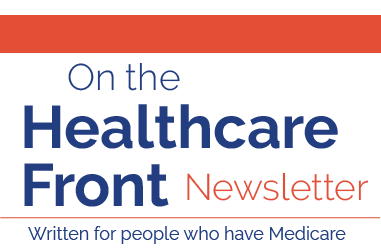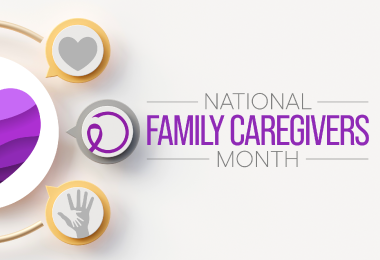
|
Issue #43 November 2025 Newsletter issues will tell you about Acentra Health’s free services for people who have Medicare as well as information from Medicare and other health-related tips. Do you receive email reminders when new issues of On the Healthcare Front are published? |
when should you call acentra health?
- If you are not ready to be discharged from the hospital.
- If your Medicare-covered skilled services are ending too soon. Examples of skilled services include things like physical therapy and nursing services.
- If you have a concern about the quality of care you received.
- If you have a concern about your medical care that needs to be taken care of right away.
Click on the button below for the phone number for your state. These services are free for people who have Medicare.
medicare open enrollment reminder
Medicare Open Enrollment is here through December 7. There’s still time to review your coverage, compare plans, and make changes if needed. Even small adjustments can help you save money and make sure your coverage fits your needs.
- Read our October newsletter for helpful tips: October Newsletter
- Listen to episode #37 of our Aging Health Matters podcast to listen to a conversation about Medicare Open Enrollment: acentraqio.com/podcast

the great american smokeout: take the first step
The Great American Smokeout is on Thursday, November 20, 2025. It is a national day to encourage and support people who want to quit smoking or using tobacco.
Quitting is one of the best things you can do for your health, and it is never too late to quit. Even small steps make a difference.
|
More Information Counseling: Learn more about Medicare coverage to help you to stop smoking at Medicare.gov. Smokefree.gov: A national resource with free quit plans, text message support, and success stories from people who have quit. Visit smokefree.gov. Centers for Disease Control and Prevention’s Tips From Former Smokers®: Real stories from people who quit, plus information about treatment options. Visit cdc.gov/tips. |
in this issue |
don't keep this a secret
Share this newsletter with friends and family who have Medicare. Copy and share this link: www.acentraqio.com/ohf/November2025
your right to quality care: filing a complaint

getting to know your medicare rights
This article is part of our monthly series, Getting to Know Your Medicare Rights, where we share simple tips to help you understand and use your Medicare benefits with confidence.
In this issue, we talk about your right to quality medical care and what to do if you feel the medical care that you or someone you’re caring for received didn’t meet expectations.
Everyone deserves safe, respectful, and high-quality care. If those standards are not met, you have the right to speak up and have your concerns reviewed.
Medicare gives you the right to file what is called a quality of care complaint. This means you can ask for an independent review if you believe a provider did not give the right care or treatment.
A provider is a person or place that gives you medical care or services. They can include a hospital, nursing home, family doctor, specialist, etc.
You might decide to file a complaint if you think that something important about your care was missed or incorrectly handled. For example, a hospital patient might be sent home before they feel ready. As a result, they later need to return for more treatment. Other examples include getting the wrong medicine or facing a long delay in getting needed care.
Sometimes caregivers notice these problems first. You may see that your loved one did not get follow-up instructions after a procedure, or that a treatment plan was not clearly explained. These types of concerns, which are part of the medical record, can be reviewed through the quality of care complaint process.
It is important to note that a quality of care complaint must be about something that appears in your medical record. It can include issues like treatment decisions, medications, or medical services that were or were not provided. However, this process cannot review things like food that was not tasty or staff who were rude. Those concerns should be shared directly with the facility or provider.
Filing a complaint is not about blame. It is about understanding what happened and helping improve care for everyone.
Acentra Health’s Beneficiary and Family Centered Care Quality Improvement Organization (BFCC-QIO) reviews these complaints for Medicare. Our team of doctors and nurses carefully looks at the medical records and listens to your concerns. The review is free, confidential, and does not affect your Medicare benefits.
|
More Information
|
caring for others and caring for yourself

November is National Family Caregivers Month. This is a time to recognize and thank the many people who care for loved ones.
If you have ever helped a friend recover from surgery, picked up groceries for a sick neighbor, or supported a spouse or parent living with a chronic illness, you have been a caregiver. Sometimes caregiving lasts only a few days or weeks. Other times, it can go on for years. Whatever your situation, what you do matters.
Finding help and support
You don’t have to do it all on your own. Support for caregivers can come in many forms.
- Respite care is short-term care that gives you, the caregiver, a break. It gives someone else a chance to step in and help for a little while so you can truly rest, take care of yourself, or catch up on things that need your attention. Respite care can take place at home, in an adult day center, or in a care facility for a few hours, a few days, or sometimes longer.
- Home health services can provide services such as skilled nursing or physical therapy in the home. Medicare may cover these services if they are prescribed by a doctor. Visit www.medicare.gov for details about coverage.
- Support groups and caregiver education programs offer information and connection. Caregiver education programs teach practical skills for daily care and stress management. You can find local and online options, including groups on social media or through trusted websites like caregiver.org.
Taking care of yourself during the holidays
Caring for someone can be rewarding, but while admirable, it can also be tiring. The holiday season, with its extra activities and expectations, can make it even harder to find time for rest. Remember, it is okay to say no. You do not have to attend every event, cook every meal, or keep up every tradition. Choosing what feels right for you and the person you’re caring for is more than okay. After all, if you’re not taking good care of yourself, you won’t be able to take care of someone else.
Try to rest when you can, eat well, and spend time in ways that bring you peace and joy. Even small breaks, a phone call with a friend, or a short walk outside can make a difference.
If you ever feel stressed or overwhelmed, reach out for support. Medicare covers mental health services (PDF), including counseling and therapy. Talking with someone can help you feel heard, understood, and reenergized. If you ever feel overwhelmed, anxious, or in crisis, help is available. Call or text 988 to reach the Suicide and Crisis Lifeline, available 24 hours a day, 7 days a week. You can also visit 988lifeline.org.
A final word
Caregiving is a powerful act of love. It takes strength, patience, and heart. This November, take a moment to appreciate all that you do. Caring for yourself is one of the kindest things you can do for both you and the person you care for.
|
More information People can learn about caregiver education programs in several ways.
|
Publication No. R146810-211-10/2025. This material was prepared by Acentra Health, a Medicare Quality Improvement Organization under contract with the Centers for Medicare & Medicaid Services (CMS), an agency of the U.S. Department of Health and Human Services. The contents presented do not necessarily reflect CMS policy.




